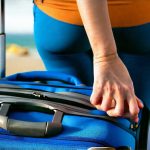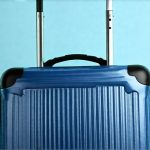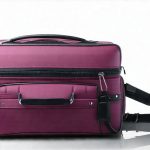Traveling should be an enriching experience, filled with discovery and joy. For many, however, it can become a source of anxiety, especially for those living with urinary sensitivity – a broad term encompassing conditions like overactive bladder (OAB), interstitial cystitis (IC), urgency incontinence, or simply heightened awareness and discomfort related to bladder function. The challenges extend beyond just finding accessible restrooms; they involve planning, packing strategically, managing potential flare-ups while on the go, and coping with the stress that travel itself can induce. This article aims to provide a comprehensive guide for navigating travel with urinary sensitivity, focusing on practical strategies to minimize disruptions and maximize enjoyment. It acknowledges the individual nature of these conditions and offers flexible solutions adaptable to various circumstances and levels of sensitivity.
The key to successful travel lies in proactive preparation. Understanding your specific condition – whether diagnosed or simply experiencing heightened sensitivity – is paramount. This includes recognizing personal triggers, knowing your limits, and having a plan for managing potential symptoms. It’s not about avoiding travel altogether; it’s about adapting your approach to ensure a comfortable and confident journey. From pre-trip planning to in-flight management and destination considerations, every aspect of travel can be tailored to accommodate urinary sensitivity, transforming what might feel like an insurmountable obstacle into a manageable and even pleasurable experience.
Pre-Trip Planning & Preparation
Meticulous planning is the cornerstone of stress-free travel for anyone with urinary sensitivity. It’s far better to anticipate potential issues and prepare accordingly than to find yourself scrambling in an unfamiliar environment. This preparation begins well before your departure date, allowing ample time to address logistical details and mental preparation. Consider your destination carefully – are accessible restrooms readily available? Is the climate likely to exacerbate symptoms (extreme heat or cold can sometimes trigger urgency)? Researching transportation options is also crucial. Long bus rides or train journeys with limited facilities might be more challenging than shorter flights, for example.
Beyond destination research, a detailed packing list is essential. This shouldn’t just include medications and toiletries, but also practical items to manage potential incidents – extra underwear, absorbent pads (even if you don’t typically use them), wet wipes, and plastic bags for disposing of soiled clothing discreetly. Don’t underestimate the power of preparedness. A small emergency kit can provide peace of mind and prevent significant distress. Finally, it’s wise to inform your travel companions about your condition, so they understand potential needs and can offer support if necessary. This isn’t about feeling ashamed; it’s about ensuring you have a supportive network during your travels.
A critical element often overlooked is mental preparation. Anxiety surrounding potential accidents or disruptions can significantly worsen symptoms. Practicing relaxation techniques like deep breathing exercises or mindfulness meditation in the weeks leading up to your trip can help manage stress levels and build resilience. Visualizing a successful journey, focusing on positive outcomes rather than worst-case scenarios, can also be incredibly beneficial. Remember that travel is meant to be enjoyable; approaching it with a calm and confident mindset will significantly enhance your experience.
Navigating Airport & Flight Challenges
Airports and airplanes present unique challenges for individuals with urinary sensitivity. The stress of travel itself, combined with limited access to restrooms and the pressurized cabin environment, can easily trigger symptoms. Security lines, long walks between terminals, and potential flight delays all contribute to increased anxiety. Planning is key here – allow extra time for navigating the airport, minimizing rushing and maximizing opportunities for restroom breaks.
- Request a seat near the front of the plane or an aisle seat for easy access to the lavatory.
- Consider contacting the airline in advance to inquire about accommodations for passengers with medical conditions. While they may not be able to guarantee specific assistance, it’s worth exploring available options.
- Stay hydrated, but avoid excessive fluid intake immediately before and during the flight. This is a delicate balance; dehydration can worsen symptoms, but overhydration can exacerbate urgency.
- During the flight, practice deep breathing exercises to manage anxiety and consider wearing comfortable, loose-fitting clothing to minimize pressure on your bladder area.
Furthermore, be prepared for potential delays or unexpected changes in schedule. Having a book, music, or other distractions readily available can help occupy your mind and reduce stress during periods of waiting. Don’t hesitate to politely inform flight attendants about your condition if you require assistance or access to restrooms. Most airlines are accommodating to passengers with medical needs, but it’s important to communicate your requirements clearly.
Destination Considerations & Restroom Access
The type of destination you choose can significantly impact your travel experience with urinary sensitivity. Destinations offering a high level of accessibility and well-maintained public facilities are generally preferable. Major cities often have more readily available restrooms than rural areas or developing countries. However, even within major cities, restroom availability and cleanliness can vary considerably.
- Utilize apps like “Flush” or “SitOrSquat” to locate nearby restrooms and read reviews about their condition.
- Research the local customs regarding restroom access – in some cultures, public restrooms may be less common or require a small fee.
- Consider staying in accommodations with private bathrooms and easy access to facilities.
- When planning activities, factor in regular opportunities for restroom breaks. Avoid scheduling back-to-back tours or excursions without adequate downtime.
Proactive planning ensures you’re not caught off guard. It’s also important to be mindful of dietary considerations at your destination. Certain foods and beverages can trigger urinary symptoms – caffeine, alcohol, spicy foods, and acidic fruits are common culprits. Be prepared to make informed choices about what you eat and drink to minimize potential flare-ups. Finally, remember that it’s okay to adjust your itinerary if necessary. If a particular activity is proving too stressful or disruptive, don’t hesitate to modify your plans to prioritize your well-being.
Managing Flare-Ups & Unexpected Issues
Despite meticulous planning, unexpected issues can arise during travel. Flare-ups of urinary sensitivity are sometimes unavoidable, and it’s crucial to have a plan for managing them effectively. This starts with carrying any prescribed medications – including emergency medication if applicable – in your carry-on luggage, ensuring they are easily accessible. Don’t rely on being able to refill prescriptions while traveling; bring enough medication to cover the entire trip plus a little extra.
If you experience a sudden urge to urinate or an accidental leak, remain calm and assess the situation. Locate the nearest restroom as quickly as possible, but avoid panicking – anxiety can worsen symptoms. If you’ve had an accident, discreetly clean up as best as possible using your emergency kit. Remember that accidents happen, and there is no shame in seeking help if needed.
- If you are traveling with a companion, don’t hesitate to ask for their assistance.
- In more serious cases, seek medical attention if necessary. Familiarize yourself with the healthcare system at your destination before departure, knowing where to find hospitals or clinics.
- After a flare-up, take time to rest and rehydrate. Adjusting your itinerary to allow for recovery is essential.
Self-compassion is paramount. Living with urinary sensitivity can be challenging, and travel can exacerbate those challenges. Be kind to yourself, prioritize your well-being, and remember that it’s okay to ask for help when you need it. Focusing on the positive aspects of your journey and celebrating small victories will contribute to a more enjoyable and fulfilling experience.





















